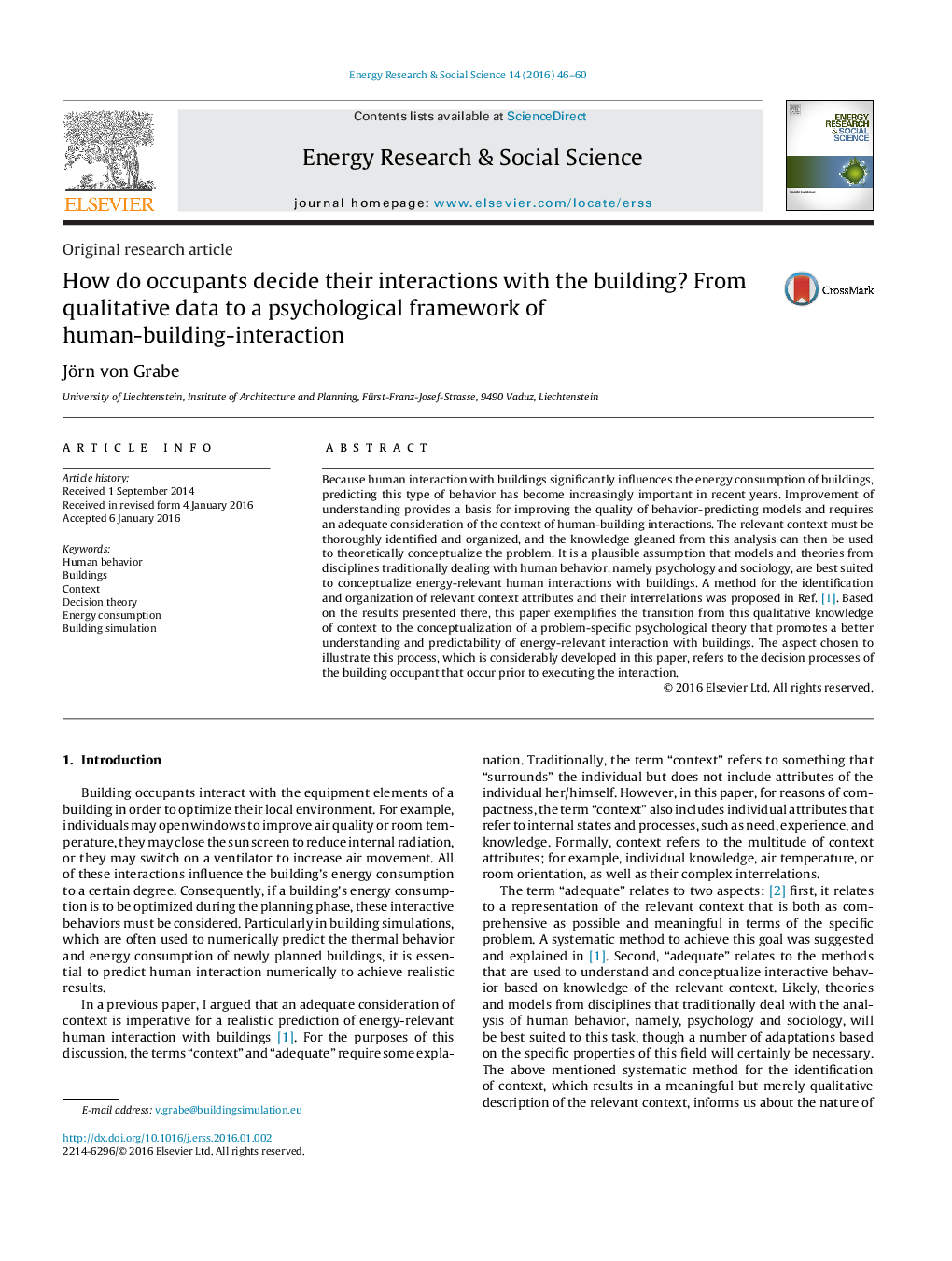| Article ID | Journal | Published Year | Pages | File Type |
|---|---|---|---|---|
| 6558193 | Energy Research & Social Science | 2016 | 15 Pages |
Abstract
Because human interaction with buildings significantly influences the energy consumption of buildings, predicting this type of behavior has become increasingly important in recent years. Improvement of understanding provides a basis for improving the quality of behavior-predicting models and requires an adequate consideration of the context of human-building interactions. The relevant context must be thoroughly identified and organized, and the knowledge gleaned from this analysis can then be used to theoretically conceptualize the problem. It is a plausible assumption that models and theories from disciplines traditionally dealing with human behavior, namely psychology and sociology, are best suited to conceptualize energy-relevant human interactions with buildings. A method for the identification and organization of relevant context attributes and their interrelations was proposed in Ref. [1]. Based on the results presented there, this paper exemplifies the transition from this qualitative knowledge of context to the conceptualization of a problem-specific psychological theory that promotes a better understanding and predictability of energy-relevant interaction with buildings. The aspect chosen to illustrate this process, which is considerably developed in this paper, refers to the decision processes of the building occupant that occur prior to executing the interaction.
Related Topics
Physical Sciences and Engineering
Energy
Energy (General)
Authors
Jörn von Grabe,
